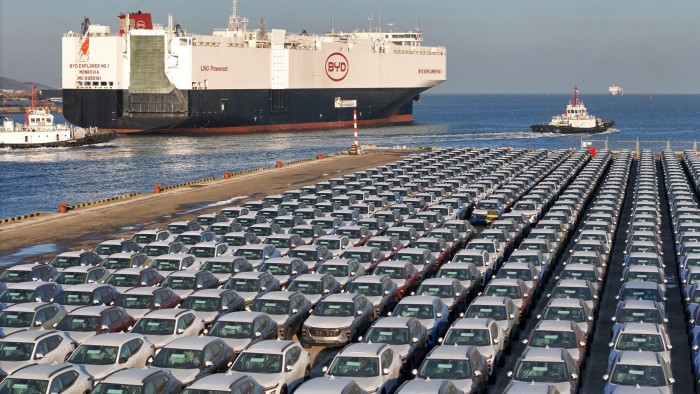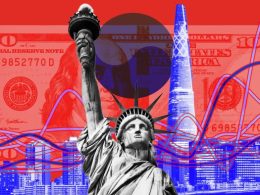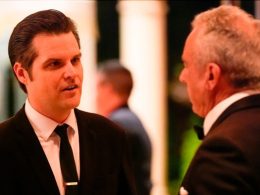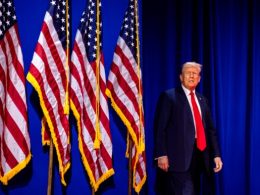Unlock the Editor’s Digest for free
Roula Khalaf, Editor of the FT, selects her favourite stories in this weekly newsletter.
Brussels is planning to force Chinese companies to transfer intellectual property to European businesses in return for EU subsidies as part of a tougher trade regime for clean technologies following the election of Donald Trump.
New criteria requiring Chinese businesses to have factories in Europe and share technological knowhow will be first introduced into a tender for €1bn worth of grants to develop batteries in December, according to two senior EU officials. The pilot could be rolled out to other EU subsidy schemes, they said.
The requirements, while at much smaller scale, echo China’s own regime, which pressures foreign companies into sharing their intellectual property in exchange for access to the Chinese market. The criteria could be subject to change ahead of the tender, officials said.
The plans form part of a hardening stance from Europe towards China as it seeks to protect companies in the bloc — subject to strict environmental regulations — from being undercut by cheap and more polluting imports.
Last month the European Commission confirmed tariffs of up to 35 per cent on Chinese electric vehicles, on top of an existing 10 per cent levy. It has also introduced stricter requirements for companies applying for hydrogen subsidies, decreeing that only 25 per cent of parts in the electrolysers used to make hydrogen can be sourced from China.
People close to US President-elect Trump have said he will put pressure on the EU to follow his lead and erect more barriers to Chinese goods and investments.
If he presses ahead with his threat of 60 per cent tariffs on Chinese exports, Beijing would then be likely to look to divert them to other regions such as the EU — which in turn would seek measures to stem the flood.
“If we want to play along with Trump on some of his agenda then we need to decide what to do about China,” a senior EU diplomat said.
But the move also comes amid deepening concern about the weakness of the EU’s economy and the ability of companies to meet ambitious climate targets without relying on cheap imports.
Brussels has also introduced domestic production targets into legislation aimed at boosting clean technologies adopted in May.
Elisabetta Cornago, senior research fellow at the Centre for European Reform think-tank, said that the Commission was “trying to find plenty of ideas” to shore up its trade defences “against a possible flood or redirection of Chinese trade flows towards Europe”.
The increased scrutiny of Chinese technology imports has already incentivised companies such as China’s CATL, the world’s biggest manufacturer, to set up so-called gigafactories in Europe. It has invested billions of euros into plants in Hungary and Germany.
Shanghai-based Envision Energy is also investing hundreds of millions of euros into facilities in Spain and France.
Meanwhile the EU’s own battery champion Northvolt, based in Sweden, is teetering on bankruptcy as it tries to meet production targets.
Batteries form a significant part of electric vehicles, accounting for more than a third of the cost, making battery supply chains critical to the European car manufacturing industry as it tries to transition to less polluting models.
But Cornago warned that a tougher stance against Chinese components could backfire on the EU’s decarbonisation efforts.
“You are temporarily putting a trade protection shaped like innovation support . . . to support your industry but that isn’t bringing down prices for consumers.” she said. The measure could add a “level of confusion over what the EU automotive sector should do to grow and compete with China”, she added.
The Commission declined to comment.
Source link









